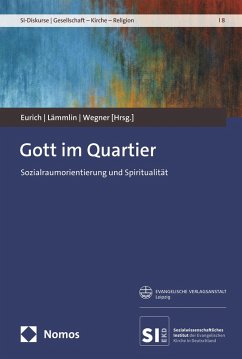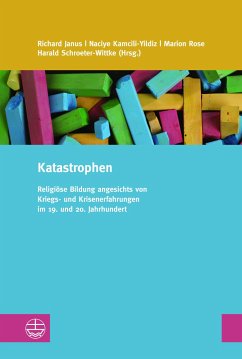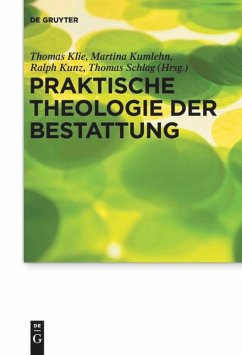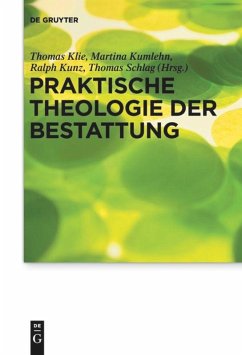Nicht lieferbar
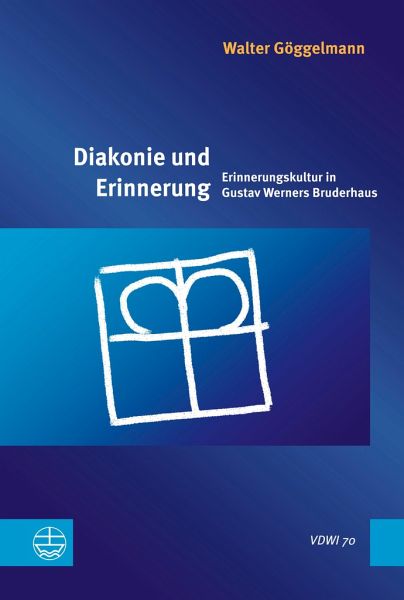
Diakonie und Erinnerung
Erinnerungskultur in Gustav Werners Bruderhaus
Herausgegeben: Mutschler, Bernhard
Versandkostenfrei!
Nicht lieferbar
Gibt es eine »diakonische Erinnerungskultur?« Vier Studien zur Thematik untersuchen diese Frage am Beispiel der Gustav Werner Stiftung zum Bruderhaus, eines süddeutschen Diakoniewerks mit vielen Standorten. Der Zeitraum reicht von der Gründung (1840) bis zur Fusionierung mit einem anderen Diakoniewerk (2004). Die diakoniegeschichtlichen Fragestellungen umfassen Anlässe und Bedingungen der Traditionsbildung um Schlüssel-Personen und -Ereignisse, Initiatorinnen und Trägergruppen, Formen der Traditionspflege und Auswirkungen auf Entscheidungen in der Werksgeschichte. Sie münden ein in die...
Gibt es eine »diakonische Erinnerungskultur?« Vier Studien zur Thematik untersuchen diese Frage am Beispiel der Gustav Werner Stiftung zum Bruderhaus, eines süddeutschen Diakoniewerks mit vielen Standorten. Der Zeitraum reicht von der Gründung (1840) bis zur Fusionierung mit einem anderen Diakoniewerk (2004). Die diakoniegeschichtlichen Fragestellungen umfassen Anlässe und Bedingungen der Traditionsbildung um Schlüssel-Personen und -Ereignisse, Initiatorinnen und Trägergruppen, Formen der Traditionspflege und Auswirkungen auf Entscheidungen in der Werksgeschichte. Sie münden ein in die theologische Fragestellung nach der »diakonischen Wirkung« solcher Traditionsbildungen auf Leitbilder, Organisations- und Personalstrukturen im Werk und auf dessen Weiterentwicklung.
[Diaconia and Memory. Culture of Remembrance in Gustav Werner's Bruderhaus]
Is there a »diaconal culture of remembrance?« Four studies on this topic examine this question using theexample of the Gustav Werner Stiftung zum Bruderhaus, a southern German diaconal organization with many locations. The period covered ranges from the foundation (1840) to the merging with another diaconal organization (2004). The diaconal-historical questions include the causes and conditions of the formation of tradition around key persons and events, initiators and sponsoring groups, forms of maintaining tradition and effects on decisions in the history of the work. They lead to the theological question of the »diaconal effect« of such tradition-building on mission statements, organizational and personnel structures in the work and on its further development.
[Diaconia and Memory. Culture of Remembrance in Gustav Werner's Bruderhaus]
Is there a »diaconal culture of remembrance?« Four studies on this topic examine this question using theexample of the Gustav Werner Stiftung zum Bruderhaus, a southern German diaconal organization with many locations. The period covered ranges from the foundation (1840) to the merging with another diaconal organization (2004). The diaconal-historical questions include the causes and conditions of the formation of tradition around key persons and events, initiators and sponsoring groups, forms of maintaining tradition and effects on decisions in the history of the work. They lead to the theological question of the »diaconal effect« of such tradition-building on mission statements, organizational and personnel structures in the work and on its further development.








